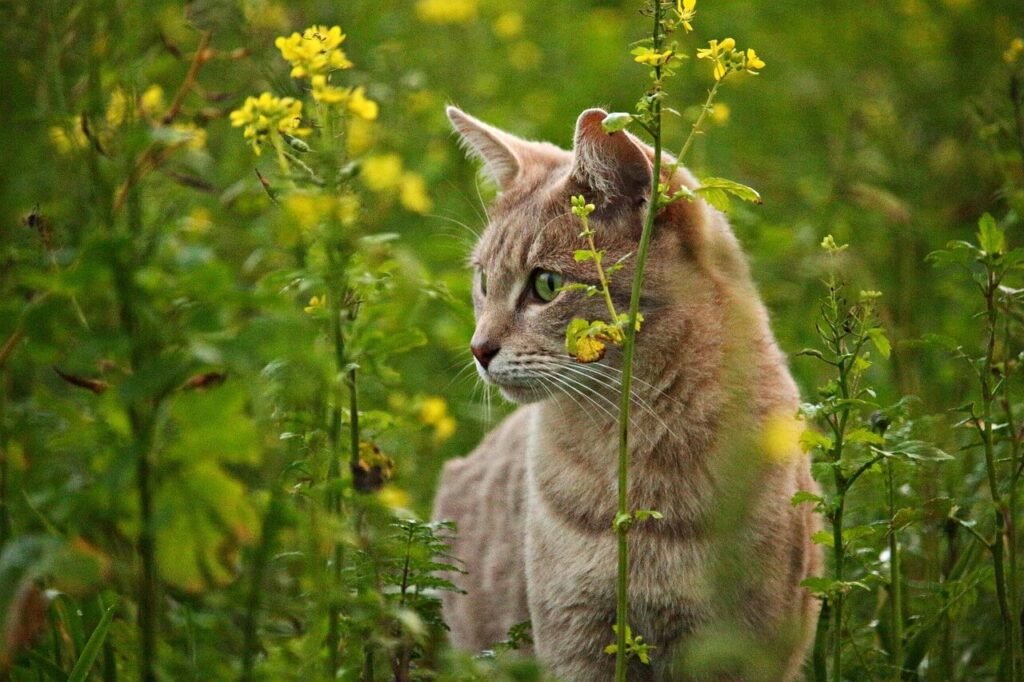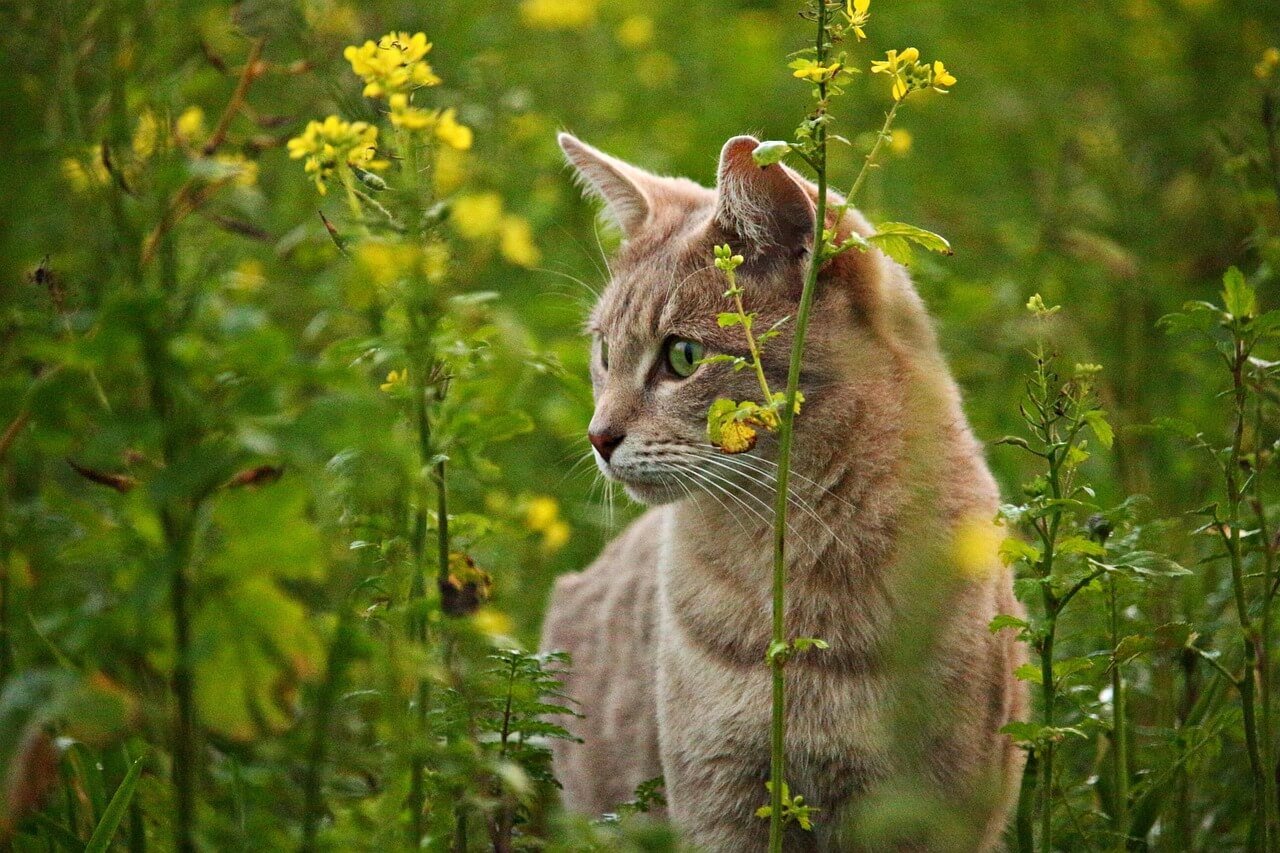How Long Does a Cat Cold Last? Understanding Feline Upper Respiratory Infections
Just like humans, cats can catch colds, but their symptoms and recovery process are quite different. A cat cold, often referred to as an upper respiratory infection (URI), is a common condition that can leave your feline friend sneezing, sniffling, and feeling under the weather. While most cat colds resolve on their own, some cases may require veterinary attention to prevent complications. Understanding how long a cat cold lasts, what causes it, and how to care for your sick kitty is essential for ensuring their speedy recovery. In this blog post, we’ll explore everything you need to know about cat colds, from symptoms and treatment options to preventive measures. Let’s dive in and help your furry companion feel better soon!
Common Causes of Cat Colds
Cat colds are typically caused by viral or bacterial infections that affect the upper respiratory tract. These infections are highly contagious and can spread easily among cats, especially in multi-cat households or shelters. Here are some common causes of cat colds:
Feline Herpesvirus (FHV-1)
This virus is one of the leading causes of cat colds and can lead to recurring symptoms during times of stress.Feline Calicivirus (FCV)
Another common viral culprit, FCV often causes cold-like symptoms such as sneezing, nasal discharge, and oral ulcers.Bacterial Infections
Bacteria like Chlamydia felis or Bordetella bronchiseptica can cause secondary infections, worsening the severity of a cat cold.Environmental Stressors
Stress, poor living conditions, or exposure to other sick cats can weaken a cat’s immune system, making them more susceptible to colds.Immune System Weakness
Kittens, senior cats, or those with underlying health issues are at higher risk of developing severe colds due to weaker immunity.
Understanding these causes can help you take preventive measures and recognize when your cat might be at risk. Early intervention is key to minimizing discomfort and speeding up recovery.
Symptoms of a Cat Cold: What to Watch For
Recognizing the signs of a cat cold early can make a significant difference in how quickly your pet recovers. Here are some common symptoms to look out for:
Sneezing
Frequent sneezing is one of the first signs of a cat cold, often accompanied by nasal discharge.Runny Nose
A congested or runny nose can make it difficult for your cat to breathe comfortably.Watery or Red Eyes
Eye discharge or redness may indicate irritation or a secondary infection.Loss of Appetite
Cats with colds may lose interest in food, especially if they’re unable to smell it due to congestion.Lethargy
A noticeable decrease in energy levels or activity can signal that your cat isn’t feeling well.
If you notice any of these symptoms, monitor your cat closely and consult a veterinarian if the condition worsens or persists. Early detection and treatment can prevent complications.
Check this guide 👉Understanding Cat Cold Treatment: Best 7 Health Tips!
Check this guide 👉How Cold Is Too Cold for Cats? Best 7 Tips!
Check this guide 👉How Did My Indoor Cat Get a Cold? Best 7 Health Tips!

Symptoms of a Cat Cold | When to Contact Your Vet |
|---|---|
Sneezing | Persistent sneezing lasting more than a week |
Runny or congested nose | Difficulty breathing or severe congestion |
Watery or red eyes | Eye swelling, discharge, or squinting |
Loss of appetite | Refusal to eat for over 24 hours |
Lethargy or weakness | Unresponsiveness or extreme fatigue |
How Long Does a Cat Cold Typically Last?
The duration of a cat cold depends on its severity, the underlying cause, and the cat’s overall health. Here’s a breakdown of what to expect during the recovery process:
Mild Cases
Most mild cat colds resolve within 7 to 10 days with proper care and rest.Severe Cases
Cold symptoms caused by viruses like herpes or calicivirus may last 2 to 3 weeks , especially if complications arise.Recurring Symptoms
Cats with feline herpesvirus may experience flare-ups during stressful periods, even after recovering.Secondary Infections
If bacteria complicate the cold, recovery may take longer and require antibiotics, extending the timeline to 3 to 4 weeks .Kittens and Senior Cats
Young kittens and older cats may take longer to recover due to weaker immune systems, sometimes requiring several weeks of care.
While most cat colds don’t last long, it’s important to monitor your pet closely and seek veterinary help if symptoms persist beyond the expected timeframe.
Tips for Helping Your Cat Recover from a Cold
Supporting your cat during their recovery can speed up the healing process and ensure their comfort. Here are some practical tips to help your feline friend feel better:
Keep Them Hydrated
Encourage your cat to drink water to stay hydrated, which helps thin mucus and ease congestion.Provide Warmth and Comfort
Create a cozy, warm space for your cat to rest and recover without disturbances.Clean Their Nose and Eyes
Gently wipe away nasal or eye discharge with a damp cloth to keep your cat comfortable and reduce irritation.Offer Smelly Foods
Warm up canned food or offer strong-smelling treats to entice your cat to eat despite their loss of smell.Minimize Stress
Reduce environmental stressors, such as loud noises or changes in routine, to support their immune system.
By providing extra care and attention, you can help your cat recover faster and minimize their discomfort. Remember, patience and consistency are key!
Common Misconceptions About Cat Colds
There are several misconceptions about cat colds that can lead to confusion or improper care. Clearing up these myths is essential for ensuring your cat receives the best possible treatment. Here are some common misunderstandings and the truth behind them:
Myth: Cat colds are just like human colds.
While they share similar symptoms, cat colds are caused by different viruses and bacteria specific to felines and require species-specific care.Myth: Antibiotics cure all cat colds.
Antibiotics only work for bacterial infections, not viral ones, which are the primary cause of most cat colds.Myth: A cat cold will go away on its own without care.
While mild cases may resolve naturally, neglecting care can lead to complications like pneumonia or secondary infections.Myth: Indoor cats can’t catch colds.
Indoor cats can still contract colds from other cats, contaminated objects, or stress-induced flare-ups of latent viruses.Myth: Vaccinations prevent all respiratory infections.
Vaccines reduce the risk but don’t eliminate it entirely, as there are many strains of viruses like calicivirus and herpesvirus.
By understanding these facts, you can provide better care and avoid unnecessary worry or mistakes when dealing with a cat cold.
Fun Facts About Feline Respiratory Health
Cats’ respiratory systems are fascinating, and learning more about them can deepen your appreciation for how they handle illnesses like colds. Here are some intriguing facts about feline respiratory health:
Cats Can’t Blow Their Noses
Unlike humans, cats rely on sneezing and natural mucus drainage to clear their nasal passages during a cold.Purring May Help Healing
The vibrations from purring have been shown to promote healing and reduce stress, potentially aiding recovery from a cold.Herpesvirus Can Stay Dormant
Feline herpesvirus remains in a cat’s system for life, flaring up during times of stress or illness.Smell Is Essential for Appetite
Cats depend heavily on their sense of smell to eat, so congestion during a cold can significantly impact their appetite.Cats Use Sneezing to Communicate
Sneezing isn’t always a sign of illness—it can also be a playful or attention-seeking behavior in healthy cats.
These fun facts highlight the unique aspects of feline respiratory health and remind us why cats need special care when they’re feeling under the weather.
Preventive Measures to Reduce the Risk of Cat Colds
Preventing cat colds is always better than treating them. By taking proactive steps, you can minimize the chances of your cat falling ill. Here are some effective preventive measures:
Keep Up with Vaccinations
Ensure your cat receives regular vaccinations against feline herpesvirus and calicivirus to reduce the risk of severe infections.Maintain a Clean Environment
Regularly clean food bowls, litter boxes, and bedding to prevent the spread of germs.Avoid Overcrowding
In multi-cat households, ensure each cat has enough space to reduce stress and lower the risk of disease transmission.Quarantine New or Sick Cats
Isolate new or sick cats until they’re confirmed healthy to protect other pets in your home.Boost Their Immune System
Provide a balanced diet, regular exercise, and mental stimulation to keep your cat’s immune system strong and resilient.
By implementing these preventive strategies, you can create a healthier environment for your cat and reduce the likelihood of them catching a cold. Prevention not only saves your cat discomfort but also spares you unnecessary vet bills!
Frequently Asked Questions About Cat Colds
Can I give my cat over-the-counter cold medicine?
No, human medications can be toxic to cats. Always consult your vet before giving any medication.
Is a cat cold contagious to other cats?
Yes, cat colds are highly contagious and can spread through direct contact or shared items like food bowls.
Can my cat catch a cold from me?
No, cat colds are caused by viruses and bacteria specific to cats and cannot be transmitted to humans.
How can I prevent my cat from getting a cold?
Vaccinations, good hygiene, and reducing exposure to sick cats can significantly lower the risk of infection.
When should I take my cat to the vet for a cold?
Seek veterinary care if symptoms worsen, last more than 10 days, or if your cat refuses to eat or drink.
Supporting Your Cat Through a Cold
Cat colds are a common but manageable issue that many feline companions face at some point in their lives. While most colds resolve within a week or two, understanding their causes, symptoms, and treatment options ensures your cat receives the care they need to recover fully. By staying vigilant, providing comfort, and seeking veterinary advice when necessary, you can help your furry friend bounce back to their playful, energetic self. Remember, your love and attention play a vital role in their healing journey. With proper care, your cat will soon be purring happily again, ready to enjoy life to the fullest!
Cat Anaphylactic Shock Treatment Costs: Best 7 Expert Tips! – Learn about costs, treatments, and financial aid options to save your cat’s life.
Exocrine Pancreatic Insufficiency in Cats: Best 7 Tips! – Learn to spot symptoms, manage EPI effectively, and improve your cat’s quality of life with expert advice.
Cost of Dog Anaphylactic Shock Treatment: Best 7 Tips! – Learn about emergency costs, financial planning, and ways to manage expenses for your dog’s care.
Exocrine Pancreatic Insufficiency in Dogs: Best 7 Tips! – Learn to spot symptoms, manage EPI effectively, and improve your dog’s quality of life with expert guidance.





